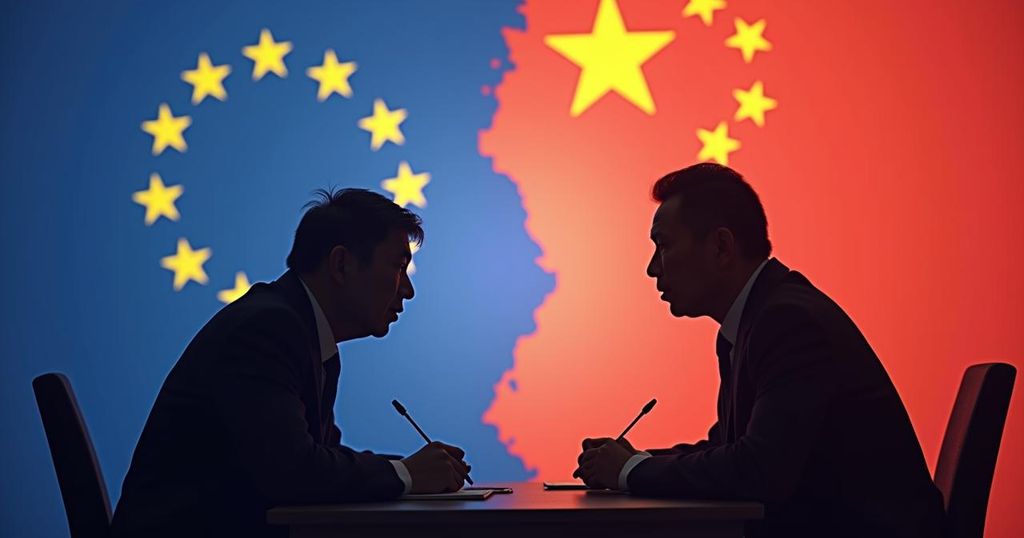EU’s Tariffs on Chinese EVs Cause Deep Divisions Among Member States

The EU has approved tariffs on Chinese electric vehicles amidst divisions among member states. Germany opposed the tariffs, reflecting internal conflicts, while support came from ten countries. The decision raises concerns over its impact on the German automotive industry and the EU’s Green Deal.
A recent meeting in Brussels resulted in a controversial decision allowing punitive tariffs on electric vehicles (EVs) imported from China, despite a lack of clear consensus among EU member states. Germany attempted to rally support against the tariffs, reflecting internal disagreements between Chancellor Olaf Scholz and Foreign Minister Annalena Baerbock. Ultimately, Germany voted against the measure, joining Hungary and three other countries, but their dissent was insufficient to block the proposal. Support came from ten EU countries, while twelve others chose to abstain, indicating a divided stance. The European Commission’s president, Ursula von der Leyen, aligned with the U.S. and French interests rather than the traditional lobbying of the auto industry, which could threaten not only the German automotive sector but also hinder the EU’s Green Deal by making affordable Chinese EVs more expensive.
The EU’s decision to impose tariffs on Chinese electric vehicles highlights the increasing tensions in global trade and the EU’s struggle to balance economic interests with sustainability goals. The debate centers on protecting local industries while promoting greener alternatives in transportation. The conflict within Germany’s government reveals the wider implications these tariffs could have on the EU’s strategy to transition from combustion engines to electric vehicles, emphasizing the delicate balance policymakers must maintain in international trade relations.
The decision to impose tariffs on Chinese EVs has sparked division within the EU, with significant implications for both the automotive industry and environmental goals. With Germany and several other countries opposing the move, the lack of a clear majority indicates ongoing debates about trade policy and sustainability in the region. As the EU navigates this complexity, the future effect on both local economies and the Green Deal remains uncertain.
Original Source: lostineu.eu
